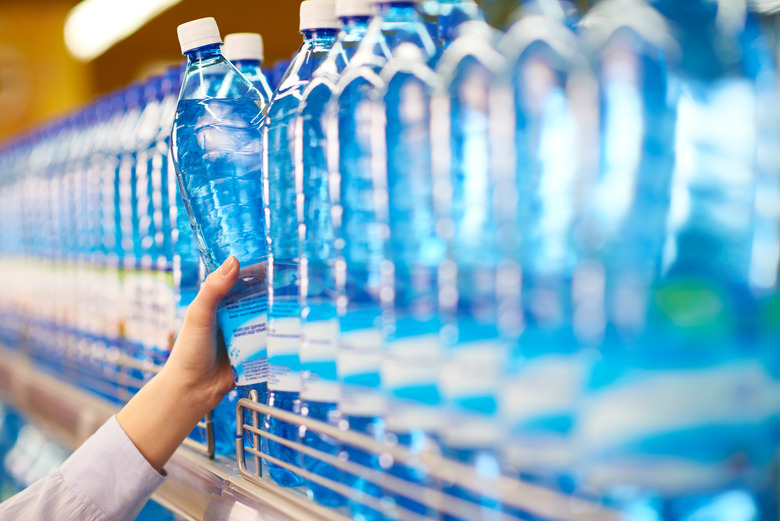You Don't Want To Drink Bottled Water After Its Expiration Date
You've had that bottle of water in the back of your pantry for some time now. It's your "doomsday stash" — you may not have bread, blankets, or a flashlight in your house. But whether there's a spontaneous power outage, water shortage, or natural disaster, you're going to be hydrated AF.
Or so you thought. What happens once that water has been sitting back there for years on end? If a hurricane really does hit two years later and you dip into your ancient water bottle reservoir, can you really crack open one of those bottles and expect to guzzle it down risk-free?
Answer: Maybe.
Water bottles all have expiration dates. You've probably seen them — little black dotted numbers marking when you should toss your water because it's "gone bad."
Wait... Here's where we get confused. How can water go bad?
It can't. Water, like oxygen or steel or any other naturally occurring substance, is simply a chemical compound; it's ageless. However, humans have taken to storing natural-occurring water in plastic, artificial, flimsy containers, and the bottles can go bad. The plastic compounds can break down over time and leak into your water — and there are a few other things you didn't know about bottled water.
Plus, plastic isn't impermeable. Algae or bacteria —not the good kind — seep in and grow inside your bottled water if you leave it for too long. This can still happen even if the bottle is closed. So if you've waited long enough, once you finally open up that "purified" water you're also likely opening up a bacteria-ridden breeding ground for harmful organisms.
But to be honest with you all, there are ways to get around this. Firstly, you can boil your water before drinking it. This will effectually kill anything that's living inside. Secondly, the plastic compounds that can leak in might make your water taste funny, but they aren't usually inherently harmful for you to ingest.
Still, it's best to replace those bottles you have hidden away at least once every two years. If it really ever is doomsday, you'd much rather be safe than sorry.
